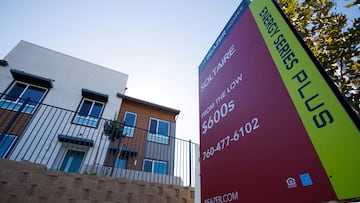HOMES
Airbnb falls in the stock market. How does this affect the US real estate market?
Property owners are not expected to sell their properties solely due to fluctuations in Airbnb’s stock price.

Airbnb’s recent decline in the stock market, with shares dropping by approximately 16.6% following disappointing second-quarter earnings, has raised questions about its impact on the U.S. real estate market.
Despite the stock market reaction, the likelihood of a significant sell-off of Airbnb properties is low. Most property owners who have invested in Airbnb rentals are likely to continue holding onto their properties, as their investment strategies are typically long-term and not directly tied to short-term stock market performance.
Additionally, the demand for short-term rentals remains robust, with Airbnb reporting its highest second-quarter booking results, indicating continued interest in the platform.
Larger concerns: Private equity in rental homes
A more pressing issue for the U.S. real estate market is the substantial investment by private equity firms in rental homes. These firms have been acquiring large portfolios of single-family homes, converting them into rental properties. Some estimates predict that as much of 40% of the rental housing stock could be in Wall Street hands by 2030.
Inevitably, conglomerates buying property makes it unaffordable for average Americans, driving up housing prices and rents together. This trend poses a greater challenge than the fluctuations in Airbnb’s stock, as it affects housing affordability and availability on a far broader scale.
Private equity’s involvement in the housing market increases ‘competition’ for homebuyers, insofar as they become unaffordable, particularly in areas where housing supply is already limited.






